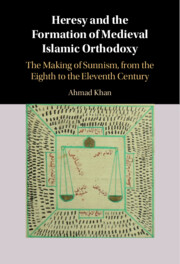
- Cited by 2
-
Cited byCrossref Citations
This Book has been cited by the following publications. This list is generated based on data provided by Crossref.
Qureshi, Omar 2023. The Shifting Ontology of the Qurʾān in Ḥanafism: Debates on Reciting the Qurʾān in Persian. Journal of the International Qur’anic Studies Association, Vol. 8, Issue. 1, p. 72.
Tamm, Marek 2024. The Palgrave Encyclopedia of Memory Studies. p. 1.
- Publisher:
- Cambridge University Press
- Online publication date:
- April 2023
- Print publication year:
- 2023
- Online ISBN:
- 9781009093033
- Subjects:
- Middle East Studies, Islam, Area Studies, History, Religion, Middle East History


